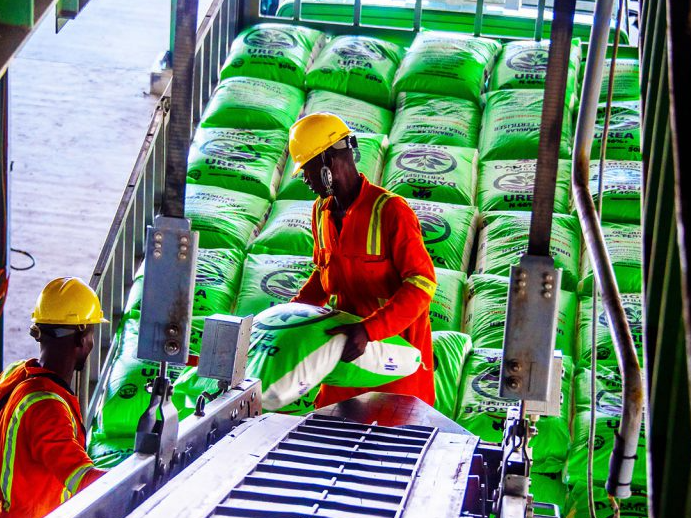With fertiliser costs halved for smallholders, the FCT hopes to boost yields and ease the strain on households battling record inflation.
For most farmers across Abuja’s area councils—Abaji, Abuja Municipal, Bwari, Gwagwalada, Kuje, and Kwali—the steep costs of fertilisers have been a recurring headache.
As the costs doubled in recent years—driven by supply chain disruptions and currency devaluation—many small farmers ultimately turned to low-quality fertilisers or tilled fewer plots.
This, alongside adverse weather, shrunk the quantity of farm yields, pushing up food prices in the markets.
A subsidy programme by the Federal Capital Territory Administration aims to reverse this trend by offering fertiliser inputs at a 50% discount.
550 metric tonnes of fertiliser products, including 3500 knapsack sprayers, are expected to be distributed to verified farmers in earnest.
The federal government hopes that these incentives will boost farm productivity and help tame rising food prices, ultimately bringing stability to a country dogged by rampant inflation.
With food costs today absorbing over half the monthly income of the average Nigerian, this subsidy eases the burden off farmers and consumers alike.
State-level fertiliser programmes
This initiative is not unique to Abuja alone. Similar palliative measures abound around the north, where state governments have led large-scale support.
In Sokoto, the government invested ₦1.4 billion to provide fertilisers at nearly half the market cost for farmers during the dry season.
Jigawa State, meanwhile, recently announced a 45–50% subsidy, slashing prices from around ₦50,000 to ₦28,800 per bag.
Both efforts highlight how state interventions can ease input costs for smallholders, enhancing productivity and sustainability.
The timing of Abuja’s fertiliser programme is particularly auspicious. It comes during the peak of the planting season, ensuring that farmers can use them before the next season.
According to the federal government, monitoring mechanisms will track usage, ensuring that fertilisers are not diverted nor sold for profit—a common problem that plagued previous national fertiliser subsidy initiatives.
Beyond yield improvements, this subsidy holds economic potential. By reducing input costs, farmers recruit more hands to ramp up production, thereby creating seasonal employment in the countryside.
With improved harvest, the demand for imported food will reduce, with knock-on effects for both the local markets and the average Nigerian family.
For a city like Abuja, where a rapid population growth has spiked the demand for food, the impacts will be profound.
Still, for all its promise, reducing the cost of fertilisers cannot substitute for proper irrigation systems, better seed access and extension services—to enhance national food security.
There’s also the problem of environmental sustainability. The increased use of chemical fertilisers—if not complemented with organic practices like agroecology—may impact the soil health in the long run.
In various communities, smallholders remain sceptical, citing past experiences where subsidised inputs were promised but never delivered or were diverted.
There is also the matter of continuity; subsidy initiatives are usually introduced with fanfare but struggle to sustain momentum beyond an initial cycle.
Nevertheless, the Abuja initiative brings succour to not only the capital’s longsuffering farmers but also to millions of households that depend on its harvest.
Summary not available at this time.






